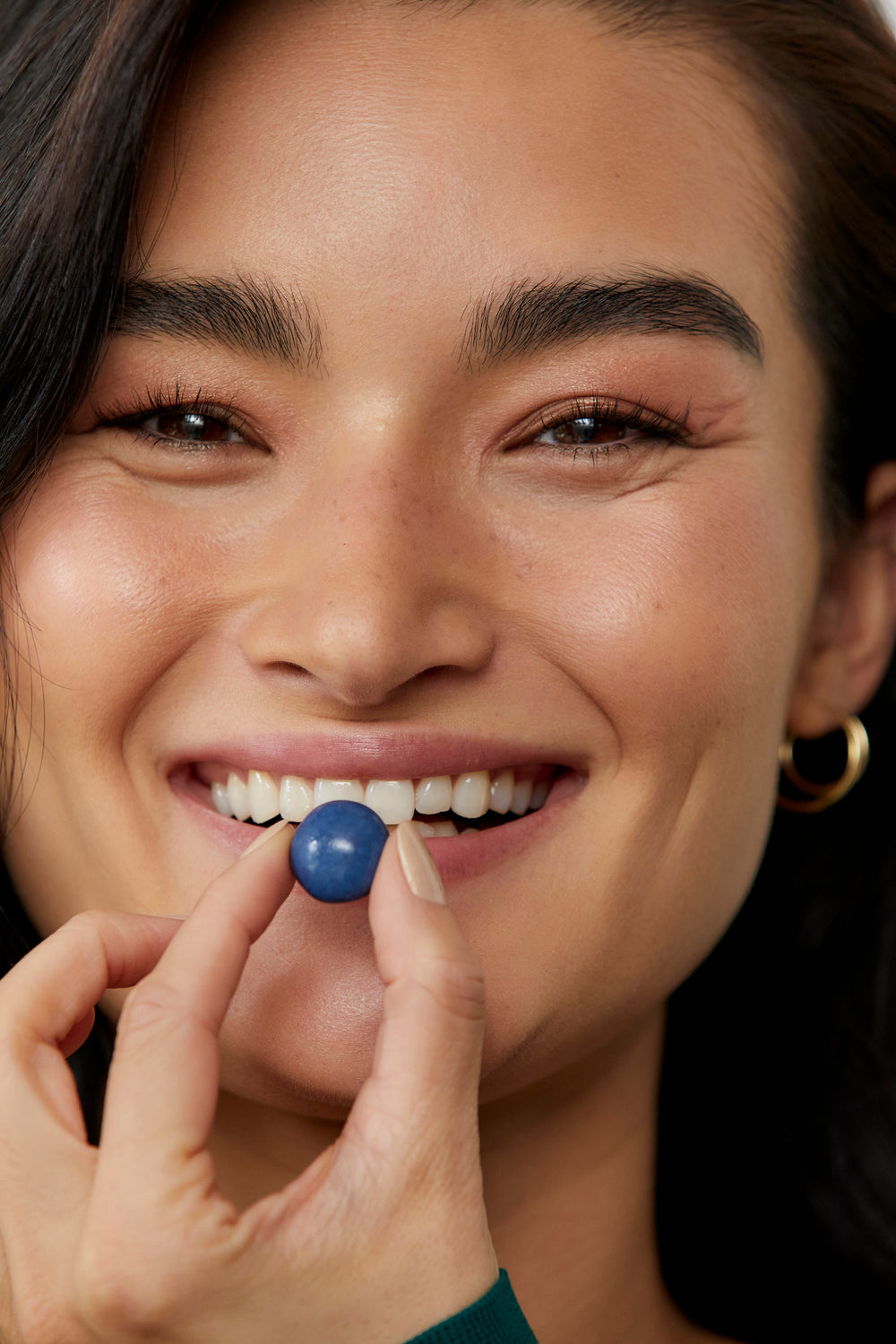
If a glance in the mirror reveals hydrated, plump skin, you can thank your collagen.
The most abundant protein in the body, collagen packs together to form a molecular scaffold that essentially gives skin its strength and elasticity and holds the body together. Believe it or not, some types of collagen are, gram for gram, stronger than steel! But as you age, this important constituent of bones, skin, muscles, and connective tissue undergoes a two-faceted decline: not only does new collagen production slow, but existing stores also break down faster.
Dermatologists tell us that collagen levels begin to decline from mid-twenties onward, with up to 30 percent of collagen production diminishing in the first five years of menopause for women. So, is there anything we can do about this “droop” in production?
Collagen supplementation can help compensate for these losses, gaining popularity in recent years due to “glowing” (sorry, we can’t stop) promises of youthful skin. In fact, research shows that daily consumption of a collagen supplement improves skin health by increasing hydration and elasticity, reducing common signs of aging like dryness and wrinkle formation.
How is collagen made?
You probably learned in high school biology that all proteins are made of building blocks called amino acids, which link together to form chains. Collagen is composed of three of these chains, wound tightly together to form a triple helix. Depending on the type of collagen being made, collagen chains combine to form the fiber-like “ropes” or “sheets” used by the body to make tissues strong, resilient, and able to withstand stretching.
As we age, however, that tightly organized network of collagen fibers in the deep skin layers breaks down to a scattered and disorganized maze. Over many years (decades!), firm, collagen-rich skin—similar to a baby’s—gives way to looser skin indicative of low collagen. Additionally, since bones and cartilage are made largely of collagen, reduced production can also lead to low bone density and joint pain, as well as more serious conditions like osteoarthritis and osteoporosis.
If you’re motivated to preserve skin elasticity and maintain bone strength, learning how to keep the internal collagen factory primed is important. At the molecular level, collagen’s basic structure is formed by a repeated sequence of three amino acids: glycine, proline, and a modified version of proline called hydroxyproline. It turns out that vitamin C is a critical nutrient in proline’s conversion to hydroxyproline. Since we can’t make our own vitamin C, a vitamin C deficiency in our diets seriously impacts collagen production.
The synergy of collagen and vitamin C
Studies show that vitamin C has the potential to accelerate collagen synthesis. If you’re taking a collagen supplement and not seeing the desired results, consider your vitamin C levels. Are you getting enough? With its broad role across many different bodily functions, such as boosting antioxidant levels, helping the body absorb iron, and enhancing wound healing, vitamin C truly needs to be maintained at adequate levels.
Luckily, it’s pretty painless to get generous amounts of vitamin C in foods. Fresh fruit and vegetables are all great sources, especially kiwis, bell peppers, oranges, and strawberries.
Supplement support
Pills, powders, gummies, and—our favorite—chocolate. There are a variety of ways to get your daily collagen, but are they all created equal? When choosing a supplement, consider the source (where it comes from) and additional ingredients (what else may have been added to it).
The first thing you’ll want to factor in is your diet. Are you an omnivore, pescatarian, or vegetarian or vegan? Since collagen is a protein found in the connective tissue of humans and animals, it’s, by default, not plant-based. If you eat meat or fish and opt for collagen peptides (aka hydrolyzed collagen), look for phrases like “grass fed, pasture raised bovine” and “sustainable, wild-caught fish.”
Phytoceramides (ceramides that come from plants) are a plant-based option that support both the collagen and elastin networks by actually inhibiting collagenase and elastase, the enzymes that trigger breakdown. They also have the added benefit of strengthening the skin’s water barrier by delivering new ceramides to the skin, helping to lock in moisture for additional hydration.
Secondly, but importantly, it's good to be mindful of any additional additives like artificial flavors and dyes as well as GMOs, refined sugar, and sugar alcohols. A clean formula with organic and responsibly sourced ingredients, like our fair trade chocolate bites, will ensure a high quality supplement free of anything you don’t need.

Sources
Bizot, V., Cestone, E., Michelotti, A., Nobile, V. (2017). Improving Skin Hydration and Age-related Symptoms by Oral Administration of Wheat Glucosylceramides and Digalactosyl Diglycerides: A Human Clinical Study. Cosmetics, 4(4), 37. Retrieved from https://doi.org/10.3390/cosmetics4040037
Cedars-Sinai staff. (2020). Collagen for Your Skin: Healthy or Hype? Cedars-Sinai Blog. Retrieved from https://www.cedars-sinai.org/blog/collagen-supplements.html#:~:text=Collagen%20is%20a%20protein%20that,Ohara%20Aivaz
Choi, F. D., Sung, C. T., Juhasz, M. L. W., Mesinkovsk, N. A. (2019). Oral Collagen Supplementation: A Systematic Review of Dermatological Applications. Journal of Drugs in Dermatology: JDD, 18(1), 9–16. Retrieved from https://pubmed.ncbi.nlm.nih.gov/30681787/
DePhillipo, N. N., Aman, Z. S., Kennedy, M. I., Begley, J. P., Moatshe, G., LaPrade, R. F. (2018). Efficacy of Vitamin C Supplementation on Collagen Synthesis and Oxidative Stress after Musculoskeletal Injuries: A Systematic Review. Orthopaedic Journal of Sports Medicine, 6(10), 2325967118804544. Retrieved from https://www.ncbi.nlm.nih.gov/pmc/articles/PMC6204628/
Goodsell, D. (2000). PDB-101 Molecule of the Month: Collagen. Protein Data Bank. Retrieved from https://pdb101.rcsb.org/motm/4

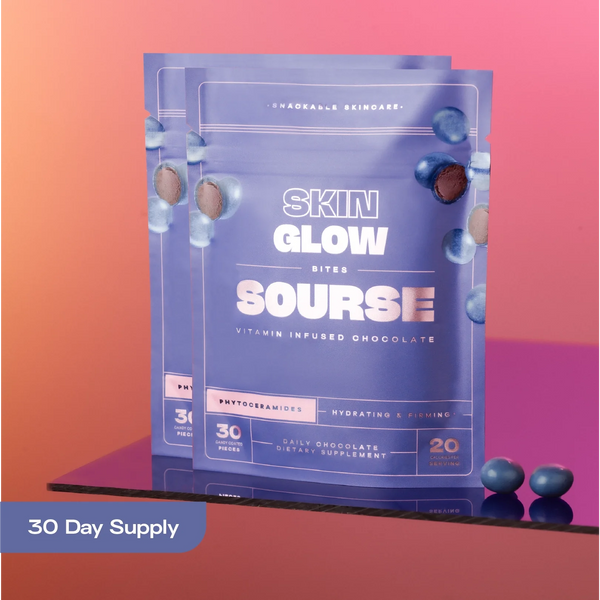
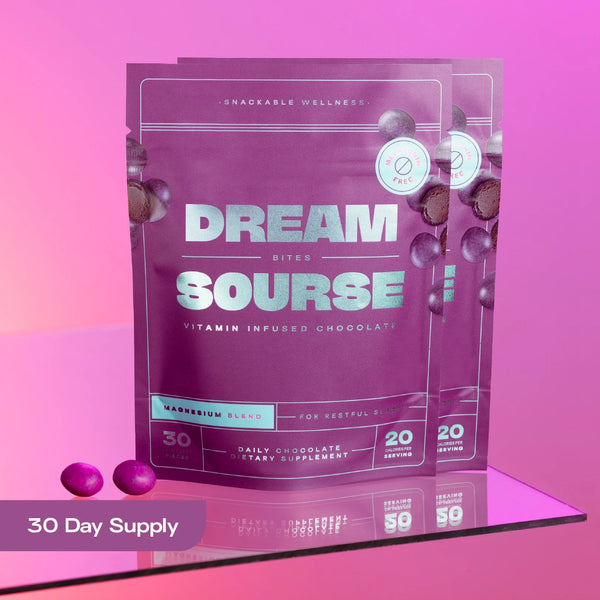
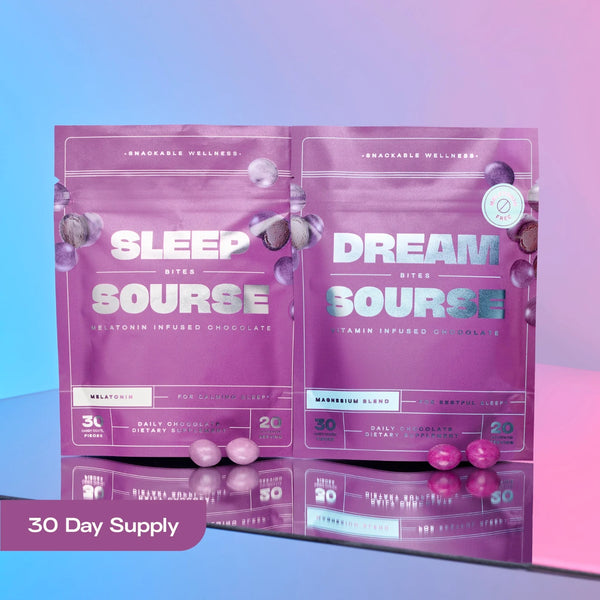
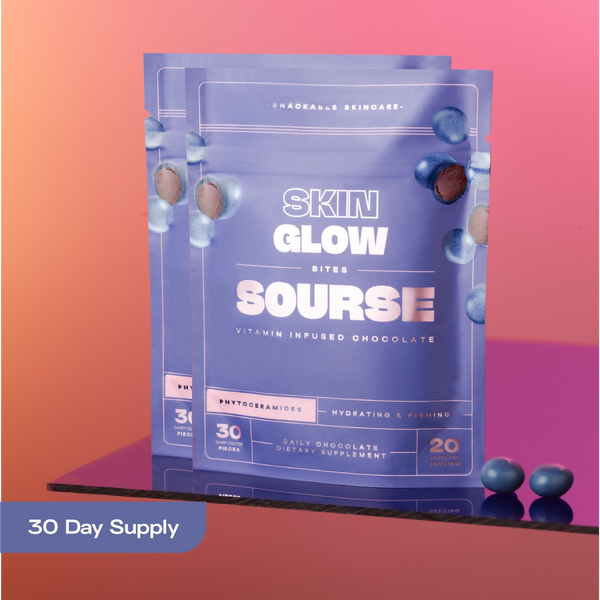
-How-biotin-and-collagen-work-together--The-best-time-of-day-to-take-your-supplements.jpg?v=0)

